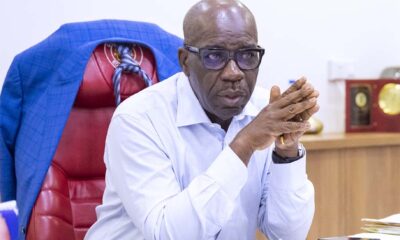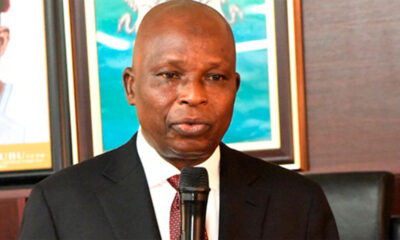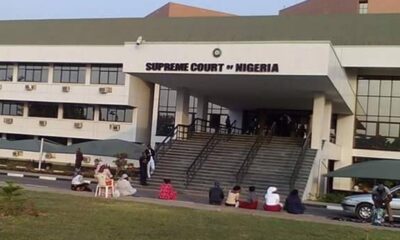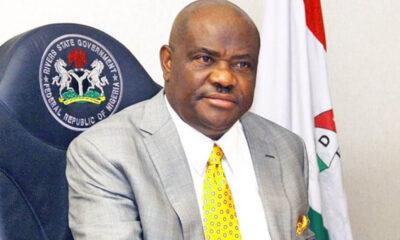metro
N2.4b Judgment Debt: Supreme Court reverses self in GTB, Innoson Motors case

The Supreme Court has set aside its earlier ruling which dismissed Guaranty Trust Bank’s appeal against a N2.4 billion judgment in favour of Innoson Motors Nigeria Limited.
The apex court set aside its own decision on Friday, while delivering judgment in an application by GTB seeking the re-listing of the appeal on the grounds that it was wrongly dismissed.
The apex court in reversing itself relied on Order 8 Rules 16 of the Supreme Court’s Rules that empowers it to set aside its decision in certain circumstances, like any other court.
Specifically, the five-member panel, led by Justice Olukayode Ariwoola, in a unanimous decision, held that the apex court erred in its ruling of February 27, 2019, wherein it erroneously dismissed GTB’s appeal with number: SC/694/2014 against the decision of the Court of Appeal, Ibadan, Oyo State.
The apex court, in the lead judgment written by Justice Tijani Abubakar, but read by Justice Abdu Aboki, claimed that it was misled by its Registry, which failed to promptly bring to the notice of the panel that sat on the case on February 27, 2019 that GTB had already filed its appellant’s brief of argument.
READ ALSO:
- NDLEA intercepts 1.5m tramadol tablets en route Kebbi, Kano at Lagos airport, seaport
- 2023: Women group urges AfDB President Adesina to contest presidency
- We were saints compared to today’s level of corruption — IBB
The apex court noted that had the panel that sat on the case on February 27, 2019 been notified of the existence of the appellant’s brief of argument, it would not had given the ruling which dismissed GTB’s appeal on grounds of lack of diligent prosecution.
The apex court justices explained that the court has powers to reverse itself where there is any reason to do so, especially where any of the parties had obtained judgment by fraud, default or deceit; where such a decision is a nullity or where it is obvious that the court was misled into giving a decision.
According to the judgment, the circumstances of the GTB case falls into the category of the rare cases where the Supreme Court could amend or alter its own order on the grounds that the said order or judgment did not present what it intended to record.
The apex court held: “I am convinced that at the material time that the appellant’s appeal was inadvertently dismissed by this court, there was in place, a valid and subsisting brief of argument filed by the applicant.
“It will be unjust to visit the sin of the court’s Registry on an innocent, vigilant, proactive and diligent litigant.
“It is obvious from the material before us, that there were errors committed by the Registry of this court, having failed to bring to the notice of the panel of Justices that sat in chambers on February 27, 2019 that the appellant had indeed filed its brief of argument.
“This is a case deserving of positive consideration by this court.
“Having gone through all the materials in this application therefore, I am satisfied that the appellant/applicant’s brief of argument was filed before the order of this court made on February 27, 2019 dismissing the applicant’s appeal.
“The order dismissing the appeal was therefore made in error. It ought not to have been made if all materials were disclosed. The application is therefore, meritorious and hereby succeeds.”
Aboki proceeded to set aside the court’s ruling of February 27, 2019 dismissing GTB’s appeal and ordered that the appeal marked: 694/2014 “be relisted to constitute an integral part of the business of this court until its hearing and determination on the merit”.
Other members of the panel are John Okoro and Helen Ogunwumiju.
THISDAY./Eagle
metro
$6bn fraud: Judge scolds Agunloye’s counsel over delay tactics
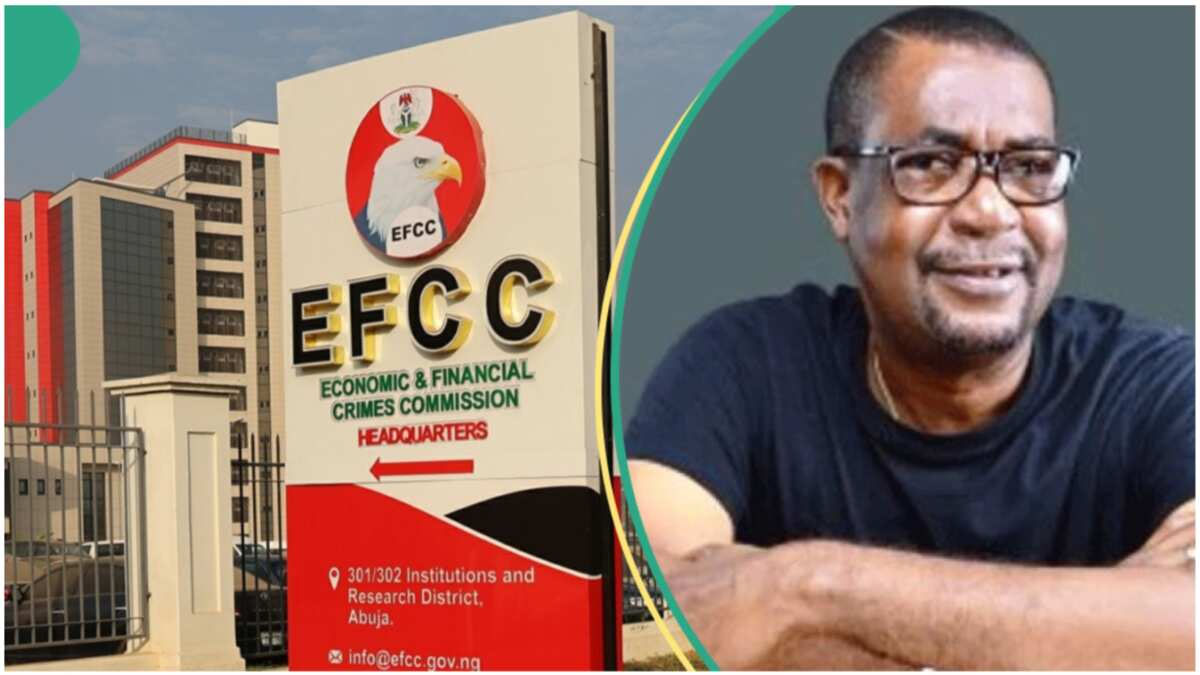
$6bn fraud: Judge scolds Agunloye’s counsel over delay tactics
Justice Jude Onwuegbuzie of the Federal High Court, Apo, Abuja On Thursday, chastised Adeola Adedipe, SAN, counsel to former Minister of Power, Olu Agunloye, for using delay tactics to slow the pace of the former minister’s prosecution.
Agunloye is being prosecuted by the Economic and Financial Crimes Commission, EFCC, on seven counts of official corruption and fraudulent award of the Mambilla Power Project contract worth $6 billion.
During Thursday’s hearings, the court observed that the defence counsel has been in the habit of making excuses based on Agunloye’s health and age, as well as filing various motions, ensuring that little progress has been achieved in the trial.
Addressing the defence counsel, Justice Onwuegbuzie stated that “My principle of justice is that of no delay. The other time you brought the issue of amicus curiae and wasted the time of the court. You should also know that in my court I don’t read processes.
READ ALSO:
- Emefiele printed new naira notes different from what Buhari approved – Ex-CBN official
- Train attack: ECOWAS court dismisses SERAP suit against FG
- Court orders varsity to pay lecturer N40m compensation for wrongful dismissal
“If you need time to serve processes, it must reach me on time, and your colleague must also be duly aware in time. There must be mutual respect. Do not come and serve processes in court; I don’t take that in my court,” he said.
Prosecuting Counsel Abba Mohammed, SAN, informed the court at the start of proceedings that the business of the day was the adoption of the prosecution’s application for the amendment of the charge, which was filed on October 30, 2024, to which the defence responded with a counter-affidavit and a request for an adjournment to allow the prosecution to study the affidavit.
Justice Onwuegbuzie adjourned the case until November 28, 2024, to rule on the adoption of the application.
$6bn fraud: Judge scolds Agunloye’s counsel over delay tactics
metro
Emefiele printed new naira notes different from what Buhari approved – Ex-CBN official
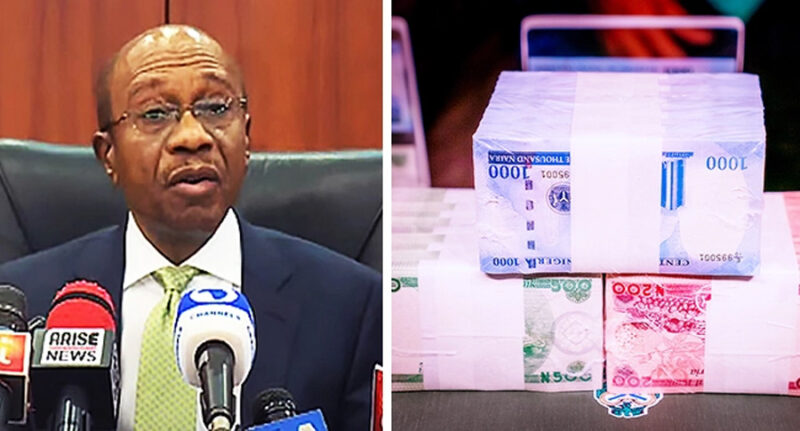
Emefiele printed new naira notes different from what Buhari approved – Ex-CBN official
The trial of former Central Bank of Nigeria (CBN) Governor, Godwin Emefiele, continued at the Federal Capital Territory (FCT) High Court in Maitama on Thursday, November 14, 2024.
A former CBN Deputy Governor, Kingsley Obiora, who served in the policy department, testified that the newly printed naira notes issued during Emefiele’s tenure deviated from the approval granted by then-President Muhammadu Buhari.
In his testimony before Justice Maryann Anenih via Zoom, Obiora disclosed, “the approval by then President Muhammadu Buhari was different from what was eventually produced,” according to a statement from the Economic and Financial Crimes Commission (EFCC).
Obiora, responding to evidence presented by prosecution counsel Rotimi Oyedepo SAN, explained that he noticed discrepancies when comparing the naira notes in circulation with the President’s original directive.
During his seven-year tenure at the CBN, Obiora served on the Committee of Governors (COG), which he described as a body comprising “the governor, four deputy governors, and the director of corporate services.” He clarified, “The governor is the Chairman of the Committee, and during my tenure as Deputy Governor, Emefiele was our Chairman.” Obiora said the Committee met every Wednesday to address significant policy matters.
READ ALSO:
- Train attack: ECOWAS court dismisses SERAP suit against FG
- Court orders varsity to pay lecturer N40m compensation for wrongful dismissal
- Worry over cash scarcity in banks as farmers mop up naira
Obiora recalled the initial introduction of the redesign plan during an event marking the one-year anniversary of the e-naira in Lagos on October 25, 2022. “The governor called all four deputy governors into a huddle and informed us of the plan to redesign the currency,” he said, expressing immediate concerns, as he felt “the event itself may not be the appropriate place to announce such a major policy.” He advised that the policy undergo further scrutiny before any public announcement.
Despite his reservations, Obiora noted that Emefiele proceeded with the plan, formally presenting it to the COG on October 26, 2022. “The governor mentioned that we had already had the president’s approval for the policy,” he stated, adding, “The deputy governor in charge of currency operations presented a memo, and it was discussed, deliberated upon.” Following this, a press conference was held to announce the redesign.
Obiora explained that the CBN Board was formally briefed on the naira redesign months later, in mid-December 2022. He said, “The policy was discussed at the board level mid-December. The board did not sit as day-to-day management but instead gave policy directions.” Obiora clarified that “the board’s involvement in the policy was limited to endorsing the COG’s prior decision, not initiating it.”
During cross-examination, defense counsel Olalekan Ojo, SAN, questioned Obiora about the timing of the board’s formal involvement. Ojo suggested that the December meeting “conforms with the naira notes currently in circulation,” to which Obiora responded, “Yes, sir.” He noted there had been no indication or directive from former President Buhari challenging the redesign.
Reflecting on past experiences with currency design, Obiora mentioned that while he was with the bank during the introduction of a redesigned N100 note in 2014, he was not directly involved in its development.
After delivering his testimony, Justice Anenih discharged Obiora and adjourned the case to December 4, 2024, and January 21, 2025, for further proceedings.
Emefiele printed new naira notes different from what Buhari approved – Ex-CBN official
metro
Train attack: ECOWAS court dismisses SERAP suit against FG

Train attack: ECOWAS court dismisses SERAP suit against FG
The Community Court of the Economic Community of West African States (ECOWAS Court) has rejected a suit filed by a group of Nigerian activists, the Socio-Economic Rights and Accountability Project (SERAP) over an attack by bandits on an Abuja-Kaduna train on March 28, 2022.
The court held that it lacks jurisdiction over the case because relevant ingredients that could qualify it to be entertained as a public interest litigation were missing.
SERAP filed the case after bandits attacked the Abuja-Kaduna passenger train in 2022.
In the attack, armed assailants bombed the train carrying over 970 passengers on the Abuja-Kaduna rail line near Rigasa in Kaduna.
The attack led to numerous fatalities, injuries, and abductions.
SERAP, by its case, sought to hold the government of Nigeria accountable for alleged human rights violations in relation to the terrorist attack.
The organisation claimed, among others, that the attack was the result of the state’s inability to provide tight security for the passengers.
READ ALSO:
- Court orders varsity to pay lecturer N40m compensation for wrongful dismissal
- Worry over cash scarcity in banks as farmers mop up naira
- FG announces plans to borrow N13.8tn for 2025 budget
SERAP argued that Nigeria’s alleged lack of measures to avert the attack violated the rights of passengers to life, security, and dignity.
It prayed for a N50 million compensation for each of the passengers and their families.
In a judgment delivered on Wednesday, the regional court declared the suit inadmissible due to lack of victim status required for public interest litigation.
A statement by the court said the judgment was delivered by Justice Dupe Atoki.
It added: “The court recognised its jurisdiction to hear the case as it involved potential human rights violations within a member-state, in accordance with Article 9(4) of the ECOWAS Supplementary Protocol.
“However, the court found the claim inadmissible on grounds that it failed to meet the victim status requirement essential for litigation under Article 10(d) of the same Protocol.
“In its findings, the court said that SERAP claimed to be acting in public interest, citing previous incidents of terrorism in the region, including attacks on educational institutions and transportation services.
“However, the court determined that the case did not meet the criteria for a public interest action, or actio popularis, which requires that the alleged violations affect a large, indeterminate segment of the public or the general public itself.
“The Court highlighted that: The victims of the March 28 attack were identifiable individuals rather than an indeterminate public group, making the claim unsuitable as a public interest litigation.
“The reliefs sought, including specific monetary compensation, were directed at the identifiable victims of the attack rather than the public at large.
“Members of the three-member panel of the court were Honourable Justice Ricardo Cláudio Monteiro Gonçalves(presiding judge), Honorable Justice Sengu Mohamed Koroma (panel member), and Honorable Justice Dupe Atoki (judge rapporteur).”
Train attack: ECOWAS court dismisses SERAP suit against FG
-

 Sports14 hours ago
Sports14 hours agoBREAKING: Super Eagles qualify for AFCON 2025
-

 Railway3 days ago
Railway3 days agoNigerian railway adds extra train to Friday, Saturday trips on Lagos-Ibadan route
-

 Aviation16 hours ago
Aviation16 hours agoDisaster averted as bird strike hits Abuja-Lagos Air Peace flight
-

 International3 days ago
International3 days agoUK announces 45,000 seasonal worker visas for 2025
-

 Education2 days ago
Education2 days ago12-year-old Nigerian girl Eniola Shokunbi invents air filter to reduce spread of diseases in US schools
-

 Business3 days ago
Business3 days agoTop 5 crypto apps that work with Nigerian Bank accounts
-
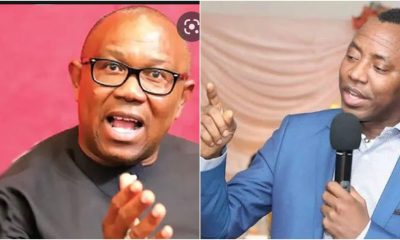
 Politics2 days ago
Politics2 days agoWhy I can’t form coalition with Peter Obi – Sowore
-

 News17 hours ago
News17 hours agoEdo Gov Okpebholo freezes govt accounts, reverses ministry’s name

